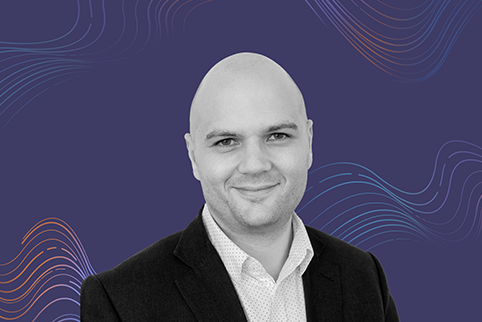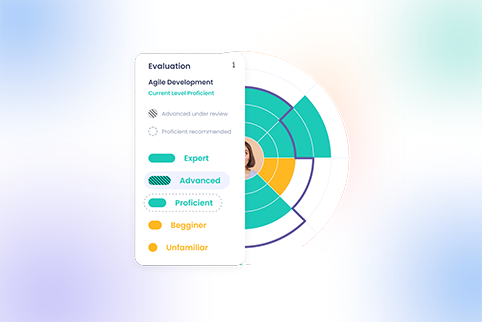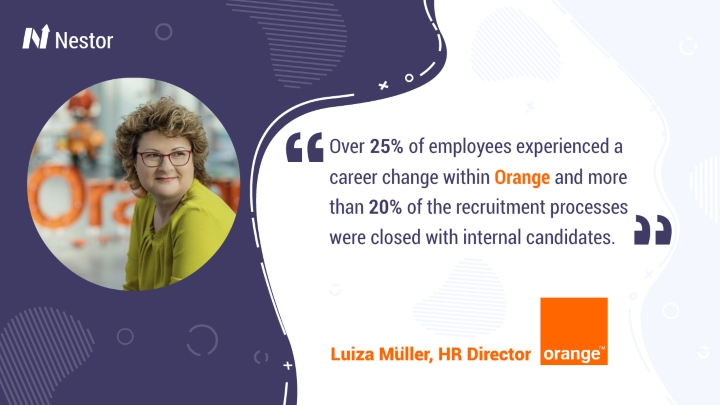How to Have More Meaningful 1:1s? Ask Powerful Questions
5 min read

One of the most beautiful and heart-warming parts of people management is seeing your people grow. A team whose manager is genuinely interested in and is taking the time and effort to contribute to the team members’ wellbeing, growth and development, is more efficient, engaged and performant. Genuine interest and care boost psychological safety.
There are different leadership styles that you can embrace and here at Nestor we encourage our clients to develop the coaching one. At least as your main and primary style.
You might think you need a qualification to be a coach for your team now? The good news is you don’t. Coaching is about active listening, talking less and asking more powerful questions. And practice, practice, practice. Begin by developing your active listening and asking powerful questions skills.
A short dive into the theory
GROW model
In the 1980s Sir John Whitmore and his colleagues created the framework for the GROW model, which is one of the most popular coaching models used in conversations, meetings and 1:1s for problem solving, goal setting and performance improvement.
GROW stands for:
- Goals: What do you want?
- Reality: Where are you now?
- Options: What could you do?
- Will: What will you do?
The authors also propose several questions for each stage of the model. However, avoid memorizing these questions and overthink what’s the order, what type of question to ask at each stage etc. Just be present and guide your colleague to identify a goal. What’s the real thing that she/he wants to achieve?
The clearer the goal, the easier it will be for you to ask powerful questions. And this will naturally come with active listening.
Active listening
It all starts with you talking less. Active listening is the ability to focus your full attention on what the other person is saying and most importantly, not saying at all – through tone of voice, way of speaking, pauses, body language.
It all starts with you talking less.
Active listening means you are addressing your colleagues’ agenda and not your own. In coaching terms, that would be leading. While coaching means exploration, discovery, challenging and powerful questioning practice.
By active listening you are focusing on understanding the meaning of what is being said – without judgement, attachment or assumptions.
Powerful questions
By reflecting active listening, your mind will be free to ask powerful questions – questions that encourage discovery, insight, commitment or action.
A powerful question will shift your colleague toward the goal she/he wants to achieve instead of looking backward or for justifications. Through powerful questions the magic of learning begins.
Through powerful questions the magic of learning begins.
Ask open ended questions that create clarity, an abundance of forward looking possibilities and that challenge your colleagues’ assumptions.
What people think of as the moment of discovery is really the discovery of the question.
— Jonas Salk
Powerful question: And what else?
In the book The Coaching Habit: Say Less, Ask More & Change the Way You Lead Forever, the author Michael Bungay Stanier refers to the powerful question as “The Awe Question”. This question has magical properties, as it creates more: more wisdom, more insights, more self-awareness, more possibilities. The question is: “And what else?”
Let’s say you are in the middle of the 1:1 with your colleague, Ann, who wants to explore her inner motivation. When asked what brings her joy, the more follow up And what else? questions you’ll ask her, the more possibilities she’ll start discovering. And this will bring her closer to the insight, that Aha! moment. Usually the first options mentioned are the ones that people have already thought about.
And what else?
Powerful question: If you are saying “Yes” to this, what are you saying “No” to?
In a world of endless possibilities, here’s another question that might have a double role – on one hand to challenge your colleague’s commitment to the things agreed and on the other one, to identify more possibilities (or lost opportunities): “If you are saying “Yes” to this, what are you saying “No” to?”
If you are saying “Yes” to this, what are you saying “No” to?
Powerful question: What’s the real challenge here for you?
Let’s say you observe one of your colleagues is having “time management issues”. Avoid sending him/her to a time management workshop at first. Start by deep diving into the real problem here. Of course it might be a matter of poor time management, but what if it’s more than that? What if your colleague is struggling with some self-worth or rejection issues.
Hence, here’s where the coaching practice can help address unconscious programming (that we all have) and develop new habits, bringing your colleague over to the right direction and empowering him/her to grow. “What’s the real challenge here for you?”
Focus on the real problem, not the first one mentioned.
Sometimes words like “here”, “now”, “for you” can make the question even more powerful as it emphasizes the moment, place and person you are talking to. It also keeps the question more personal and makes the other person feel valued and listened to.
Final thoughts
There is no doubt that the easiest way is always to show how to do something, to show “the right way” or to bring the solution into the table.
There is no doubt that you, as a manager, have more exposure and experience and you might identify the solution faster. But think on the medium and long-term – does this still sound as a good deal to you and your team? Guide your team to find their full potential and flourish. This practice will help them identify creative solutions and be more confident.
If you give a hungry man a fish, you feed him for a day. If you teach a man to fish, you feed him for a lifetime.
Happy coaching!







